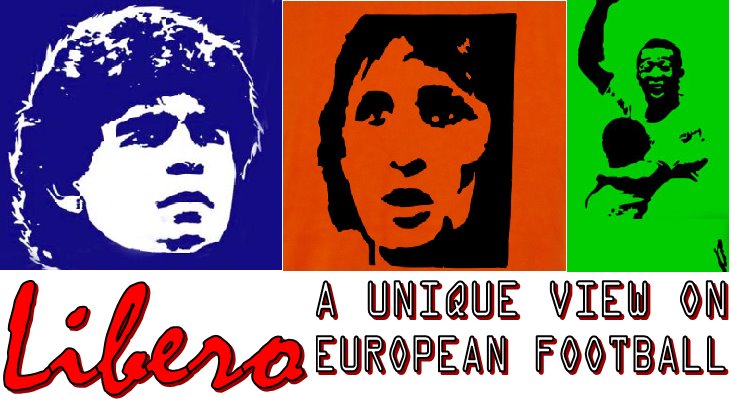There have been football matches over various times, which have shaped the game as we know it. The result has been creation of new formations, new styles and the making and breaking of reputations within the game. What is the cause of such great change? Defeat: an enigma that occurs on many occasions, yet the cause of defeat itself lies on a number of factors rather than a solitary, crystal-clear reason. Surely it cannot be as Ronaldo suggested in a 2000 hearing, analysing the loss against France a few years previous?
On a number of occasions, the defeat is often self-inflicting, with poor tactics being exploited by the opposition team, with the manager being criticised. For example in 1950, Brazil’s reliance on the opposition playing the WM formation (devised by Herbert Chapman of Arsenal), which they easily took apart, was the predominant factor in their 2-1 defeat to Uruguay. The Uruguayans, in contrast to Spain and Sweden took up an offensive looking formation, and found faults in the Brazilians defensive line, which was covered up by their brilliant attacking play. The consequence of the defeat was so great that even now it is seen as the greatest national tragedy in Brazilian history, where the overwhelming favourites lost. According to Alex Bellos’s Futebol, in the 28th minute, Obdulio hit Bigode, Brazil's left half, and this punch changed the psychological advantage that Brazil had over their opponents. And in the 79th minute, Gigghia caught out Barbosa, by shooting at the near post rather than crossing as he did for Uruguay’s first goal. It is now known as The Fateful Goal.
A similar national tragedy occurred in 1974, when Rinus Michels reunited the majority of the legendary Ajax team for the World Cup. Similar to 1950, the fate of the final had already been sealed according to the public and the media. Jules Rimet had already prepared a speech in Portuguese; The Brazilian Federation had ordered gold medals for the players and for the 173,850 Brazilians, losing to local rivals, recently disposed of, in front ‘almost 10%’ of Rio’s population’, a world record at the time, according to Bellos. Countless books and articles have been published since then, analysing why such an impossible result had indeed happened. Overwhelming favourites in Germany 1974, against the hosts themselves, this defeat is blamed on a plethora of reasons, but most intriguingly against Bild, the German tabloid, who ran a story of a pool party before the final itself. The party may have caused a change in mood in the Dutch camp, with the wives and girlfriends calling to seek the truth. In the years after the defeat, they acknowledge its existence, but deny their partners’ involvement in it.
Another reason is political. The Nazi invasion of Holland in the World War is one that is almost always mentioned in the build up to any Dutch-German match up, and many see this as an inferiority complex in Holland’s disfavour. Yet when the Dutch found themselves a goal up inside a minute from Cruyff’s run and the penalty which it fashioned, they ‘forgot’ about the second goal and killing the game off. They wanted to embarrass their ‘German oppressors’, which their fellow finalists had no part in. This taunting football, angered the Germans, led by Beckenbauer, Der Kaiser, and soon they rallied, with Paul Breitner and Der Bomber, Gerd Muller scoring an awkward yet balletic goal. As the second half progressed, the Dutch played their usual game of ‘Total Football’, but could not breach the Deutsch rearguard, led by the original libero Beckenbauer.
What other reasons can one conjure up, rather than inferior quality? The fact that Cruyff, man-marked by Berti Vogts, played too deep in the first half to have impact through his sublime technical ability, shows that even a tactical genius such as the Dutchman himself is prone to flaws. Another reason, why defeat occurs is through refereeing decisions. The words by Beckenbauer to English referee Jack Taylor in the appeals to the first minute Dutch penalty award may have affected his unbiased view throughout the rest of the game. ‘You are an Englishman’ must have echoed through his mind when awarding a penalty to the Germans, for which Holzenbein dived. This was countered when he disallowed a potential second Muller goal for offside, perhaps in his mind evening up the consequences of his previous decision.
Rene Mercet is a name which lies with Italy’s 1934 World Cup success. The Swiss referee had a hand in Italy’s path to World Cup glory. With the use of this global sporting event hosted in Italy, Mussolini used it to his advantage to promote his fascist views. Mercet is thought to have favoured Italy through controversial refereeing decisions, seen in Italy’s 7-1 win against the USA and the Quarter Final replay against Spain. He was later suspended by the Swiss Football Federation. Calls for use of goal-line technology were heightened when teams were saved from defeat due to a lack of communication. The first incident was in early 2005, when Pedro Mendes’s shot from 50 yards was fumbled by then United keeper Roy Carroll, but the linesman Rob Lewis defends the ‘non-goal’ claiming he was ‘doing my primary job’ which was ‘watching for offside’. Worse was the ‘lack of concentration’ in a regional tournament in the state of Sao Paulo, where female referee Silvia Regina de Oliveira awarded a goal when a ball boy kicked the ball in jest into the net, allowing Santacruzense to draw level late into the game. As was the case with Cruyff’s decision not to go to the 1978 World Cup, the decision was blamed on his wife Danny; it seemed easy to blame defeat on women then.
Unlike Mussolini, who was promoting his Fascist party, Franco, the notorious Spanish dictator, used to apparently allow Barcelona the occasional victory in the El Clasico derby in order exploit morbo, and in this way he portrayed the Catalan club and everything connected with it to be taboo. He banned Catalan to be spoken amongst other things. In 1943, Barcelona were 3-0 up front the first leg in the King’s cup match, and lost 11-1 in the second leg after a visit before the game from the director of state security threatening the players that they are only living in the country due to the generous nature of Franco. This bullying nature still appears to live on in Madrid through their tactics in the transfer market.
The final reason is financial. Of course aside from the watch worth £18,000, that Moggi gave to a referee in Italy, in return for certain favours within the recipient’s profession, there lies a reason why defeat occurs instead of corruption and match-fixing. Conspiracy theorists will be glad to see the return of contemplating the reason of Ronaldo’s zombie-esque movement in the 1998 World Cup final. Many say it was a fit of some sort, but what was the reason for the inclusion in the starting XI? Perhaps a boot contract that requires him to play? This was also reported to be the case why Rensenbrink of the Netherlands played in the 1974 final, when it was clear he was not fit with a thigh injury.
Or maybe you could forget all this and just believe Ronaldo’s input, which is to put it simply: difference in quality, conceding goals and also poor team performance.
Thursday, 30 August 2007
Subscribe to:
Post Comments (Atom)



1 comment:
top [url=http://www.xgambling.org/]online casinos[/url] coincide the latest [url=http://www.casinolasvegass.com/]free casino[/url] free no store perk at the leading [url=http://www.baywatchcasino.com/]spare casino games
[/url].
Post a Comment